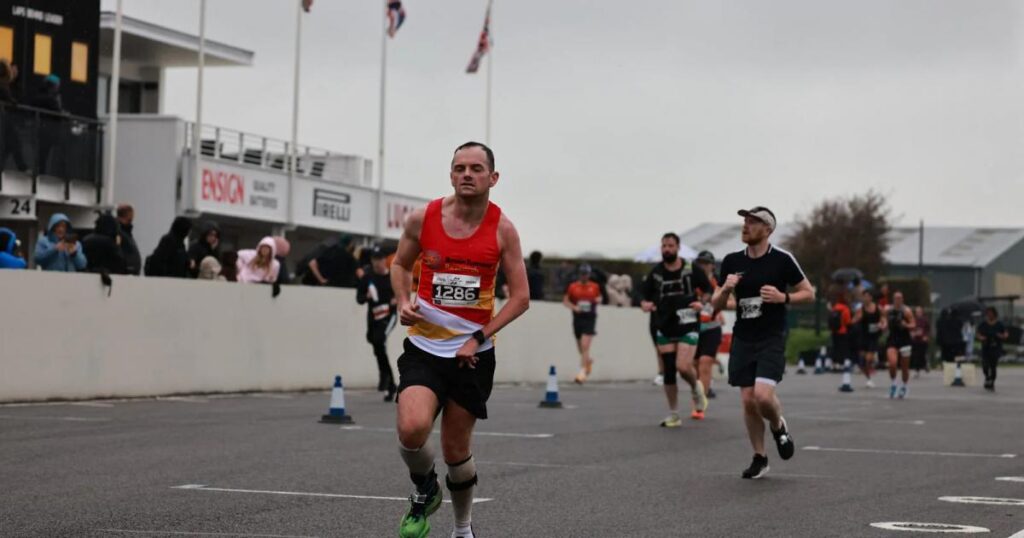The 35-year-old had surgery for a brain tumour when he was just six that that left him paralysed on one side.
He took up running as a teenager in hopes of coming to terms with his disability, and is now a fitness instructor.
He set out on the Goodwood half-marathon on Sunday (October 19) in support of Brain Tumour Research in a bid to become the fastest runner with a hemiplegia muscle weakness condition.
Anthony ran the 13.1 miles in two hours and three minutes, 12 minutes faster than the previous record of two hours and 15 minutes.
Anthony said: “After my brain tumour I was always told by medical professionals ‘unfortunately you’ll never be able to do so many things’. But I’ve learnt in life that it’s up to you. You can either accept what they say or you can do your best to prove them wrong! That’s what I did.
“Now I hope my journey can inspire and motivate all those who are going through tough times at the moment, and show there is hope and a future. You just have to never give up. I’m proud to be running for Brain Tumour Research.”
Anthony has no peripheral vision in his left eye and has to rely on the right side, the effects of complications from his surgery as a child in 1996.
“Training isn’t always easy,” Anthony revealed. “I have to adapt my technique and push that bit harder.
“But running helped me process my diagnosis.”
He already holds the Guinness World Record for the fastest marathon run with hemiplegia in 2024 in 5 mins 49 secs.
Anthony raises money for the charity Brain Tumour Research, which funds studies to help find better treatments.
“My brain tumour could be treated but took me to dark places mentally,” he admits.
“I often wonder where I’d be had I not had a brain tumour. I look at all the things I’ve achieved and wonder what it’d be like if my body functioned fully.
“I’ve survived a brain tumour diagnosis but have been left with the impact of treatment.”
These tumours kill more children and adults under 40 than any other cancer, yet just one per cent of the national spend on cancer research is allocated to them, the charity points out.
Brain Tumour Research campaigns for more investment in research to help find less invasive treatment which hasn’t changed in 20 years.
The charity’s Charlie Allsebrook said: “Anthony’s story is sadly not uncommon. This disease is indiscriminate and can hit anyone at any age. There are more than 100 types of brain tumour, making them difficult to treat.”
The voluntary organisation lobbies for more government investment in research to speed up new treatments — and ultimately to find a cure.




